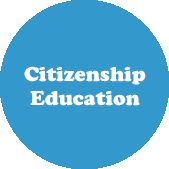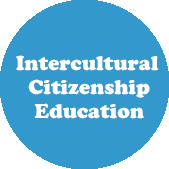Citizenship Education
Modern citizenship education is no longer about being able to convey knowledge about political institutions and processes instead, as a school subject, it can focus on developing competences related to ‘effective and constructive interaction with others, thinking critically, acting in a socially responsible manner and acting democratically’ (European Commission/EACEA/Eurydice, 2017: 9).
The Council of Europe has developed a Reference Framework of Competences for Democratic Culture (2017) to support education systems in ensuring that learners
- Become more aware of the challenges they may encounter in life;
- Realize the implications of certain decisions;
- Recognize that some behaviours are unacceptable.
The competences for a democratic culture are also developed through dimensions of knowledge and understanding, skills and attitudes, together with a value competence (Council of Europe, 2018: 38):
- Valuing human dignity and human rights
- Valuing cultural diversity
- Valuing democracy, justice, fairness, equality and the rule of the law.
The objective of citizenship education is to empower students to ‘act as competent and effective democratic citizens’ (Council of Europe, 2018: 37).
References:
European Commission/EACEA/Eurydice (2017). Citizenship Education at School in Europe . Luxembourg: Publications Office of the European Union.
Council of Europe (2018). Reference Framework of Competences for Democratic Culture.





